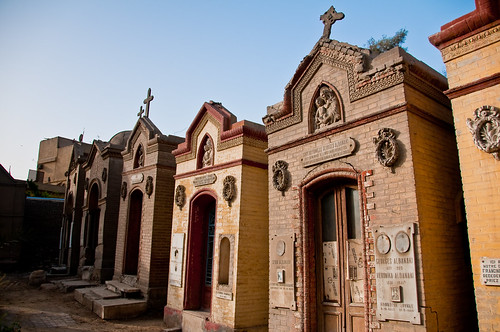 Yasmine Saleh recently reported on the dilemma many Coptic Christians face in the upcoming Egyptian presidential election. While Copts often felt like second-class citizens under the Mubarak regime, many will likely support candidates affiliated with this past regime due to fear of increased discrimination under an Islamist presidency. Saleh explains:
Yasmine Saleh recently reported on the dilemma many Coptic Christians face in the upcoming Egyptian presidential election. While Copts often felt like second-class citizens under the Mubarak regime, many will likely support candidates affiliated with this past regime due to fear of increased discrimination under an Islamist presidency. Saleh explains:
Coptic voter Medhat Malak hopes those discriminatory rules will be changed if his choice for president wins – Mubarak’s last prime minister and former military commander Ahmed Shafiq.
He worries that an Islamist head of state would make life more uncomfortable for Copts, who blame ultra-orthodox Salafi Muslims for a surge of attacks on churches since Mubarak’s overthrow in a popular uprising 15 months ago.
“Islamist policies on Christians are vague. It is possible they would restrict our freedoms to gain popularity among strict Muslims at our expense,” said Malak, 33, whose Cairo church has been the centre of a row over whether it has a proper license.
A senior Orthodox Coptic church official said 6 million Copts are among the 50 million eligible voters who go to the polls on May 23 and 24 and again next month in a run-off if no candidate scores more than 50 percent in the first round.
If Christians voted as a bloc – which may not happen – they could help swing an unpredictable race whose main contenders are either Islamists or men who served under Mubarak at some time.
Many voters are undecided, but ask a Copt and most are swift to declare a preference for Shafiq or Amr Moussa, the former Arab League chief and Mubarak’s one-time foreign minister.
Both are Muslims, like all 13 candidates, and both were part of the Mubarak era, when Christians complained of being treated as second-class citizens in the workplace or elsewhere.
Read the full article here.












